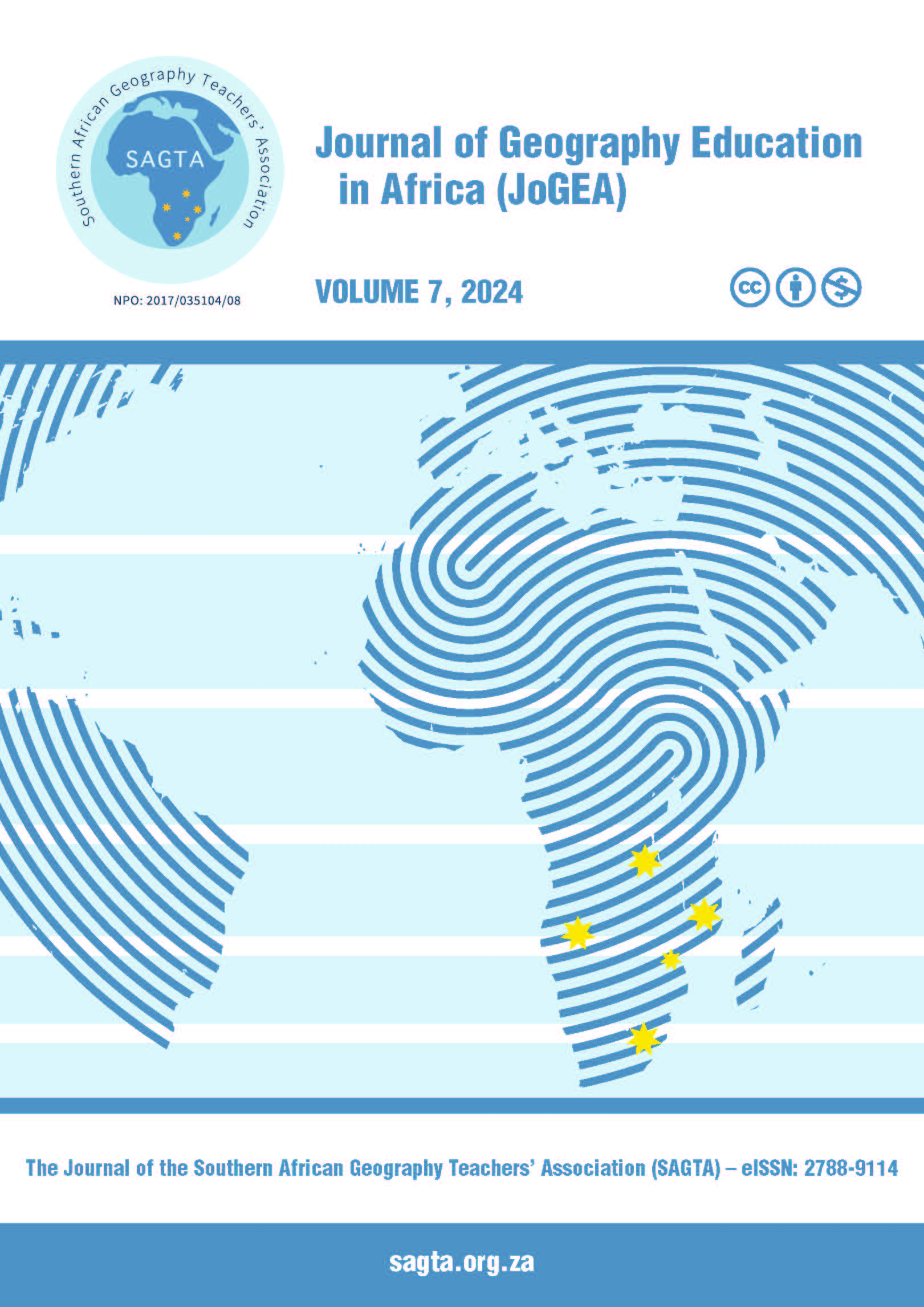Learners' and Teachers' perspectives on the use of code switching in Geography teaching and learning
DOI:
https://doi.org/10.46622/jogea.v7i1.4863Keywords:
Geography, Code switching, Perception, Academic performance, English language proficiencyAbstract
Language of instruction stands as a crucial element in fostering learners’ comprehension of any subject matter. Prior studies indicate that learners’ limited proficiency in the English language is among the factors influencing their performance in Geography. The present study delved into the impact of code switching in the domain of Lesotho’s geography education, drawing insights from both learners’ and teachers’ viewpoints. Drawing on Hoffmann’s theory of code switching, the study employed explanatory sequential mixed method research design, which involved classroom observations, focus-group interviews as well as in-depth interviews with grade 10 learners and teachers respectively. Findings indicate that code switching in geography education improves learners’ comprehension by improving their proficiency in subject-specific terminology. However, an over-reliance on code switching must be avoided as learners can lose their ability to employ geography vocabulary. This study suggests that the Lesotho Education Language Policy could be revised to include the selective use of mother tongues in teaching and learning.
Downloads
Published
Issue
Section
License
Copyright (c) 2024 Thabang Francis Khalema, Prof. Mohaeka G. Raselimo

This work is licensed under a Creative Commons Attribution-NonCommercial-ShareAlike 4.0 International License.


